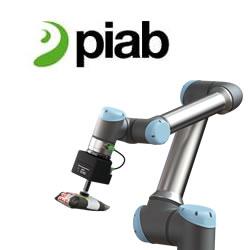Twenty-five Teams From around the World to Participate in DARPA Robotics Challenge Finals
$3.5 million in prizes at stake as human-robot teams attempt simulated disaster response
The international robotics community has turned out in force for the DARPA Robotics Challenge (DRC) Finals, a competition of robots and their human supervisors to be held June 5-6, 2015, at Fairplex in Pomona, Calif., outside of Los Angeles. In the competition, human-robot teams will be tested on capabilities that could enable them to provide assistance in future natural and man-made disasters. Fourteen new teams from Germany, Hong Kong, Italy, Japan, the Peoples Republic of China, South Korea, and the United States qualified to join 11 previously announced teams. In total, 25 teams will now vie for a chance to win one of three cash prizes totaling $3.5 million at the DRC Finals.
"Were excited to see so much international interest in the DARPA Robotics Challenge Finals," said Gill Pratt, program manager for the DRC. "The diverse participation indicates not only a general interest in robotics, but also the priority many governments are placing on furthering robotic technology. As this technology becomes increasingly global, cooperating with the United States in areas where there is mutual concern, such as disaster response and homeland security, stands to benefit every country involved.
"Were looking forward to seeing how the teams ensure the robustness of their robots against falls, strategically manage battery power, and build enough partial autonomy into the robots to complete the challenge tasks despite DARPA deliberately degrading the communication links between robots and operators," said Pratt.
To qualify for the DRC Finals, the new teams had to submit videos showing successful completion of five sample tasks: engage an emergency shut-off switch, get up from a prone position, locomote ten meters without falling, pass over a barrier, and rotate a circular valve 360 degrees.
The 14 newly qualified teams are listed below by location and organizational affiliation.
Germany
* Team Hector (Technische Universität Darmstadt, Darmstadt)
* Team NimbRo Rescue (University of Bonn, Bonn)
Hong Kong
* Team HKU (The University of Hong Kong, Hong Kong)
Italy
* Team WALK-MAN (Istituto Italiano di Tecnologia, Genoa; University of Pisa, Pisa)
Japan
* Team Aero (University of Tokyo, Tokyo)
* Team AIST-NEDO (National Institute of Advanced Industrial Science and Technology, Tokyo)
* Team HRP2-Tokyo (University of Tokyo, Tokyo)
* Team NEDO-Hydra (University of Tokyo, Tokyo; Chiba Institute of Technology, Chiba; Osaka University, Osaka; Kobe University, Kobe)
* Team NEDO-JSK (University of Tokyo, Tokyo)
Peoples Republic of China
* Team Intelligent Pioneer (Hefei Institutes of Physical Science, Chinese Academy of Sciences, Changzhou)
South Korea
* Team ROBOTIS (ROBOTIS, Seoul)
* Team SNU (Seoul National University, Seoul)
United States
* Team DRC-Hubo @ UNLV (University of Nevada, Las Vegas)
* Team Grit (Grit Robotics, Grand Junction, Colo.; Colorado Mesa University, Grand Junction, Colo.; AutonomouStuff, LLC, Morton, Ill.; Harbrick, Moscow, Idaho)
These 14 teams join the 11 teams that participated in the December 2013 DRC Trials and earned enough points to automatically qualify to participate in the Finals:
* Tartan Rescue (Carnegie Mellon University, National Robotics Engineering Center, Pittsburgh)
* Team IHMC Robotics (Florida Institute for Human & Machine Cognition, Pensacola, Fla.)
* Team KAIST (Korea Advanced Institute of Science and Technology, Daejeon, South Korea)
* Team MIT (Massachusetts Institute of Technology, Cambridge, Mass.)
* Team RoboSimian (NASA Jet Propulsion Laboratory, Pasadena, Calif.)
* Team THOR (University of California, Los Angeles; University of Pennsylvania, Philadelphia)
* Team TRACLabs (TRACLabs, Inc., Webster, Texas)
* Team Trooper (Lockheed Martin Advanced Technology Laboratories, Cherry Hill, N.J., Rensselaer Polytechnic University, Troy, N.Y.; University of Pennsylvania, Philadelphia)
* Team Valor (Virginia Tech, Blacksburg, Va.)
* Team ViGIR (TORC Robotics, Blacksburg, Va.; Technische Universität Darmstadt, Germany; Virginia Tech, Blacksburg, Va.; Oregon State University, Corvallis, Ore.)
* Team WPI-CMU (Worcester Polytechnic Institute, Worcester, Mass.)
"There will be roughly 15 different commercial and custom physical robot forms demonstrated at the DRC Finals," said Pratt. "Although seven teams will use the upgraded Atlas robot from Boston Dynamics, its each teams unique software, user interface, and strategy that will distinguish them and push the technology forward."
In tandem with the DRC, DARPA is sponsoring the Robots4Us contest, which asks U.S. high school students to prepare 2- to 3-minute videos describing their vision of the roles theyd like to see robots play in future society. Up to five individual winners (with chaperones) will be selected to receive a trip to attend the DRC Finals in person and participate in a panel discussion before an audience of media, engineers, and industry leaders. The deadline for entries is April 1, and rules for the contest can be found at: http://www.theroboticschallenge.org/Robots4Us.
The DRC Finals event is free and open to the public and media. In addition to the competition, an on-site robotics exposition (DRC Expo) will showcase technology related to disaster response, robotics, and unmanned aerial systems, and include an overview of DARPAs mission and legacy.
More information about the DRC Finals, the teams, and the DRC Expo can be found at www.theroboticschallenge.org.
Featured Product

